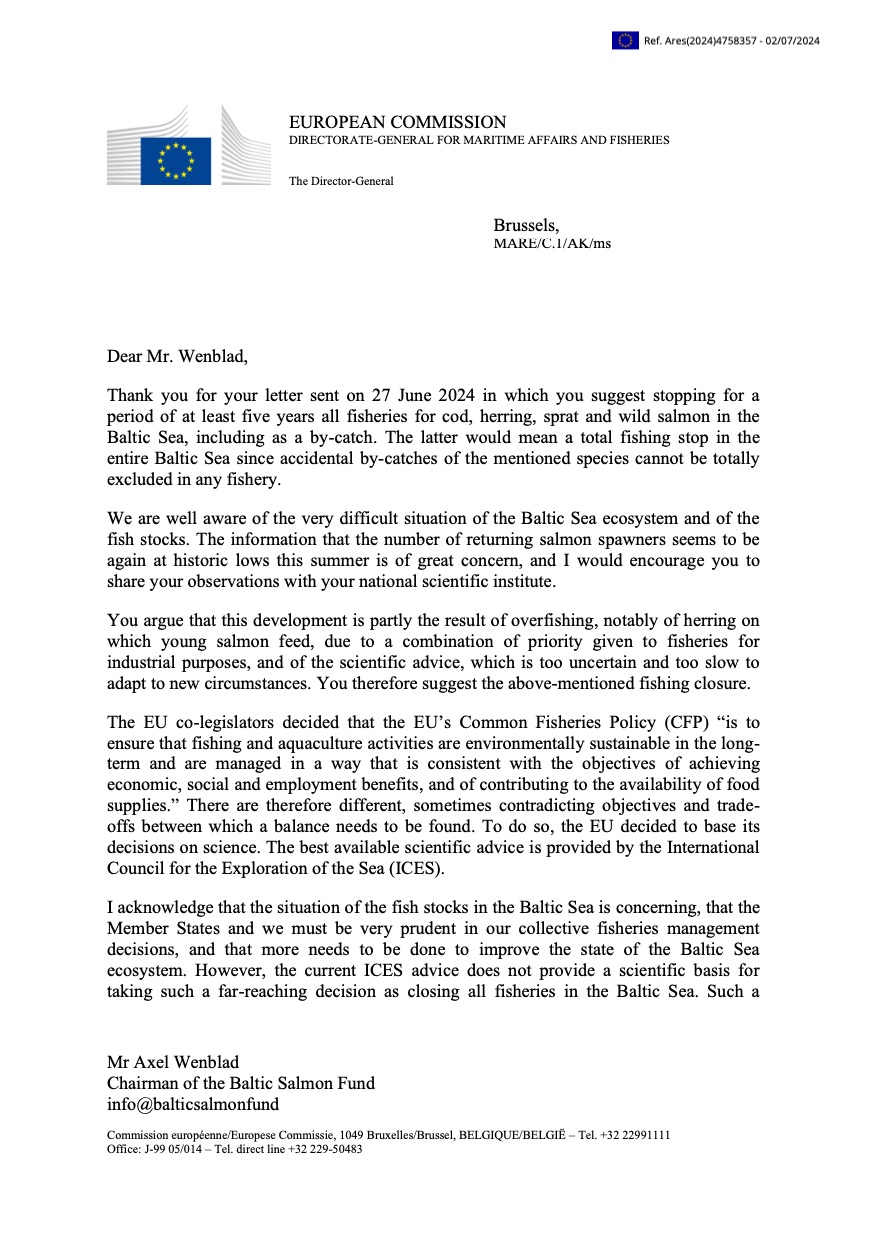 EU-kommissionen har nu svarat på Stiftelsen för Östersjölaxens brev och krav på ett fiskestopp under fem år.
EU-kommissionen har nu svarat på Stiftelsen för Östersjölaxens brev och krav på ett fiskestopp under fem år.
– Vi noterar att via har fått ett snabbt svar, ett seriöst svar och det är ett längre svar, inget artigt bekräftande av att de har fått vårt brev bara. Vi har blivit sedda och vi har fått framför vårt krav så det är vi nöjda med, säger Axel Wenblad, Stiftelsens ordförande och mottagare av svaret från EU-kommissionen.
Svaret
Dear Mr. Wenblad,
Thank you for your letter sent on 27 June 2024 in which you suggest stopping for a
period of at least five years all fisheries for cod, herring, sprat and wild salmon in the
Baltic Sea, including as a by-catch. The latter would mean a total fishing stop in the
entire Baltic Sea since accidental by-catches of the mentioned species cannot be totally
excluded in any fishery.
We are well aware of the very difficult situation of the Baltic Sea ecosystem and of the
fish stocks. The information that the number of returning salmon spawners seems to be
again at historic lows this summer is of great concern, and I would encourage you to
share your observations with your national scientific institute.
You argue that this development is partly the result of overfishing, notably of herring on
which young salmon feed, due to a combination of priority given to fisheries for
industrial purposes, and of the scientific advice, which is too uncertain and too slow to
adapt to new circumstances. You therefore suggest the above-mentioned fishing closure.
The EU co-legislators decided that the EU’s Common Fisheries Policy (CFP) “is to
ensure that fishing and aquaculture activities are environmentally sustainable in the long-
term and are managed in a way that is consistent with the objectives of achieving
economic, social and employment benefits, and of contributing to the availability of food
supplies.
” There are therefore different, sometimes contradicting objectives and trade-
offs between which a balance needs to be found. To do so, the EU decided to base its
decisions on science. The best available scientific advice is provided by the International
Council for the Exploration of the Sea (ICES).
I acknowledge that the situation of the fish stocks in the Baltic Sea is concerning, that the
Member States and we must be very prudent in our collective fisheries management
decisions, and that more needs to be done to improve the state of the Baltic Sea
ecosystem. However, the current ICES advice does not provide a scientific basis for
taking such a far-reaching decision as closing all fisheries in the Baltic Sea. Such a2
decision would seem disproportionate and not striking the required balance between the
CFP’s various policy objectives.
I hope I could clarify this matter for you.
Kestutis SADAUSKAS
On behalf of Charlina VITCHEVA